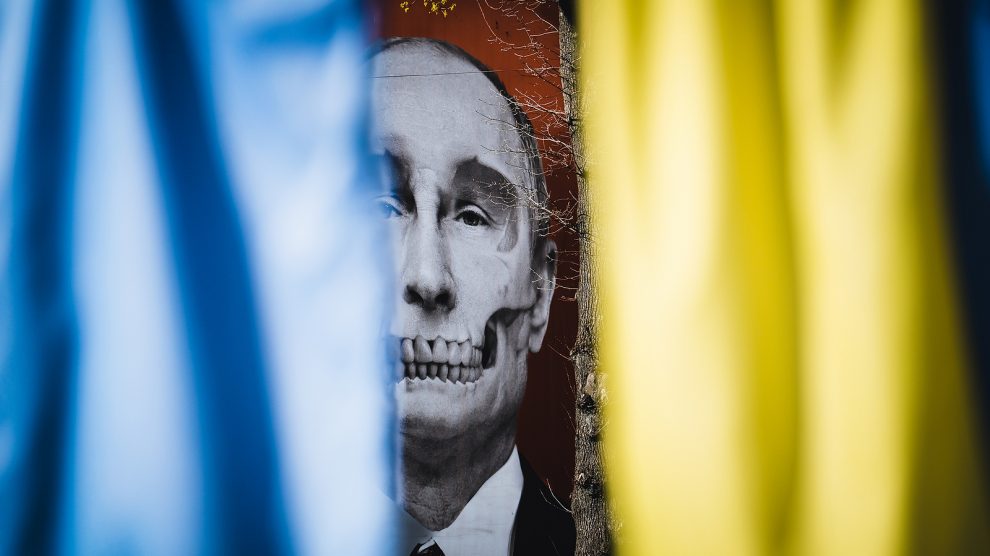Russia has repeatedly violated its international agreements and is clearly unwilling to change its behaviour. The international community must respond with even stiffer sanctions.
Less than 24 hours after Russia and Ukraine agreed to a deal that would allow the resumption of vital grain exports from Ukrainian Black Sea ports, the Russian Federation launched a missile strike on the port of Odesa. The international community quickly condemned the Russian attack. Now, many are sceptical of Russia’s future intentions.
- Russian attack on Odesa leaves Ukrainian grain export deal in tatters
- Russia’s war: Global inflation, famine, and recession
- Yes, we must help Ukraine win the war, but then we must step aside
Russia’s decision to attack these ports hours after the grain agreement was the latest example of the Russian Federation’s complete disregard for rules and regulations.
When the initial invasion of Ukraine began in 2014, the international community worked quickly to try and resolve the conflict.
Known as the Minsk Protocols, the Organisation for Security and Cooperation in Europe (OSCE) met with Russia and Ukraine to discuss the war in the Donbas. The agreements listed a series of provisions spanning from a ceasefire and troop withdrawal in eastern Ukraine to reinstating Ukrainian control over its borders and enabling the distribution of humanitarian assistance in the region.
Despite signing the document, the Russians constantly violated the ceasefire, and they refused to withdraw from eastern Ukraine.
Russia has also prevented the OSCE and humanitarian organisations from entering the occupied portions of eastern Ukraine. Given the difficulty of enforcing the Minsk Agreements, France and Germany proposed a new format. Known as the Normandy Summit, these discussions aimed to peacefully resolve the Donbas conflict. These negotiations, however, were eventually stalled.
While the French and Germans continued to debate with the Ukrainians on how to resolve the crisis, the Russians resumed their policy of violating international norms in eastern Ukraine. Eventually, Russian President Vladimir Putin decided that the Minsk and Normandy formats were “no longer useful” to his cause, and he launched the second invasion of Ukraine.
If there are any lessons learned from the failed Minsk and Normandy formats over the past eight years, it is that Russia cannot be trusted.
As the international community continues to aid Ukraine during its time of need, it must continue to pressure the Russian Federation. Future agreements must outline provisions that are measurable and achievable. These deals must also be fully implemented. Otherwise, should they contain any ambiguity, Russia will continue to violate these agreements.
Everything possible
As a result, the international community should do everything possible to help Ukraine in its time of need. First, the globe should continue to send financial, humanitarian, medical, and defence aid to Ukraine. Providing these forms of assistance will help Ukraine win the war. Giving Ukraine the weapons it needs will allow the Ukrainians to force the Russians out of the country. Meanwhile, supplying Ukraine with the financial, humanitarian, and medical assistance it needs will allow it to rebuild itself.
Second, the international community should continue to impose sanctions on Russia. Russian government officials should be prevented from traveling to their lavish Western homes, and their global assets should be seized. In addition, their international visas should be canceled. If Russian government officials are unwilling to end the unnecessary war in Ukraine, then they should be punished.
Finally, the international community should introduce stiffer sanctions on Russian businesses. To date, some Russian banks have been removed from SWIFT, and thousands of Western companies have terminated their operations in Russia. Removing more Russian banks from SWIFT would hurt the Russian economy. Pursuing these options would see Russia’s GDP decline by 10 per cent. This, in turn, would limit the Russian finances to fund the war.
Overall, Russia’s actions in Ukraine suggest that it is unwilling to observe the various agreements and deals drafted to protect citizens impacted by the war. The Russian Federation has continuously violated the provisions outlined in these agreements, and it is unwilling to change its behaviour. Therefore, the international community must implement stiffer penalties on Russia. If the Russian Federation is reluctant to cooperate with these deals, then perhaps it will learn to respect these rules and regulations by force.
Unlike many news and information platforms, Emerging Europe is free to read, and always will be. There is no paywall here. We are independent, not affiliated with nor representing any political party or business organisation. We want the very best for emerging Europe, nothing more, nothing less. Your support will help us continue to spread the word about this amazing region.
You can contribute here. Thank you.








Add Comment